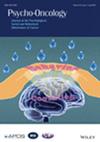生活压力事件与皮肤癌的发生
IF 3.3
2区 医学
Q2 ONCOLOGY
引用次数: 0
摘要
目的:人们普遍认为情绪状态会影响皮肤状况,但有关压力对皮肤癌发病影响的研究却十分有限。这项回顾性研究试图通过调查生活压力事件与皮肤癌发病率之间的复杂关系来扩展皮肤癌风险因素的视角:样本包括皮肤病诊所的 268 名随访者,分为三组:曾被诊断为皮肤黑色素瘤且目前病情缓解的患者(32%)、曾被诊断为非黑色素瘤皮肤癌的患者(30%),以及对照组中的皮肤癌高危人群(38%)。参与者填写了有关童年和成年生活事件以及成年后主观压力最大事件后资源损失和获得情况的调查问卷。结果童年的不良经历与黑色素瘤的发生有关,与对照组相比,黑色素瘤组报告的此类经历明显较多(p <0.001)。结论研究结果表明,压力、生活事件、对变化的适应以及皮肤癌之间可能存在错综复杂的联系,未来的研究可能会进一步揭示这些联系。这项研究强调了在医疗机构中采用更全面的方法来进行压力管理、制定应对策略和预防皮肤癌的必要性。本文章由计算机程序翻译,如有差异,请以英文原文为准。
Stressful life events and the occurrence of skin cancer
ObjectiveIt is widely acknowledged that emotional states can influence skin conditions, yet limited research has delved into the impact of stress on skin cancer development. This retrospective study sought to expand the perspective on skin cancer risk factors by investigating the complex relationship between stressful life events and the incidence of skin cancer.MethodsThe sample included 268 individuals followed‐up in a dermatological clinic, in three groups: Patients who had previously been diagnosed with cutaneous melanoma and are currently in remission (32%), those who had been diagnosed with non‐melanoma skin cancer (30%), and a control group who are at risk for skin cancer (38%). Participants filled in questionnaires regarding childhood and adulthood life events, and loss and gain of resources following their subjectively most stressful event in adulthood. Multinomial logistic regression was used to examine the associations of life events with skin cancer occurrence, and mediating and moderating effects of resource loss/gain.ResultsAdverse childhood experiences were associated with melanoma occurrence, with the melanoma group reporting significantly more such experiences compared to the control group (p < 0.001). Resource loss from subjectively significant stressful life events in adulthood partially mediated the association between adverse childhood experiences and melanoma incidence.ConclusionsThe findings suggest that there may be intricate connections between stress, life events, adaptation to change, and skin cancer, which future research may further unravel. This study underscores the need for a more comprehensive approach to stress management, coping strategies development, and skin cancer prevention in healthcare settings.
求助全文
通过发布文献求助,成功后即可免费获取论文全文。
去求助
来源期刊

Psycho‐Oncology
医学-心理学
CiteScore
6.30
自引率
8.30%
发文量
220
审稿时长
3-8 weeks
期刊介绍:
Psycho-Oncology is concerned with the psychological, social, behavioral, and ethical aspects of cancer. This subspeciality addresses the two major psychological dimensions of cancer: the psychological responses of patients to cancer at all stages of the disease, and that of their families and caretakers; and the psychological, behavioral and social factors that may influence the disease process. Psycho-oncology is an area of multi-disciplinary interest and has boundaries with the major specialities in oncology: the clinical disciplines (surgery, medicine, pediatrics, radiotherapy), epidemiology, immunology, endocrinology, biology, pathology, bioethics, palliative care, rehabilitation medicine, clinical trials research and decision making, as well as psychiatry and psychology.
This international journal is published twelve times a year and will consider contributions to research of clinical and theoretical interest. Topics covered are wide-ranging and relate to the psychosocial aspects of cancer and AIDS-related tumors, including: epidemiology, quality of life, palliative and supportive care, psychiatry, psychology, sociology, social work, nursing and educational issues.
Special reviews are offered from time to time. There is a section reviewing recently published books. A society news section is available for the dissemination of information relating to meetings, conferences and other society-related topics. Summary proceedings of important national and international symposia falling within the aims of the journal are presented.
 求助内容:
求助内容: 应助结果提醒方式:
应助结果提醒方式:


